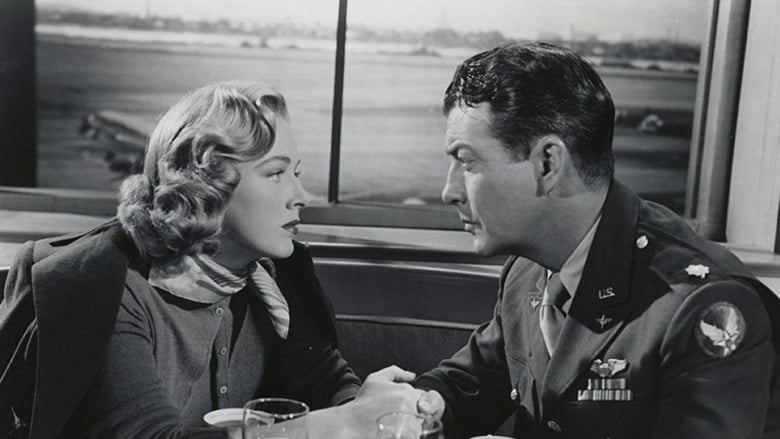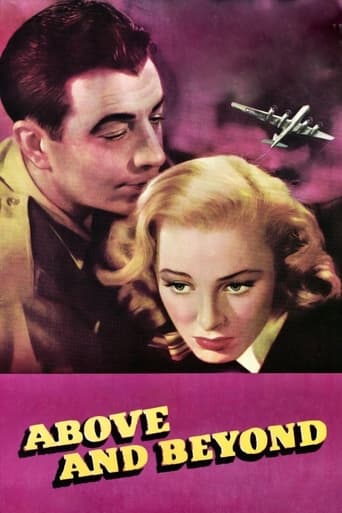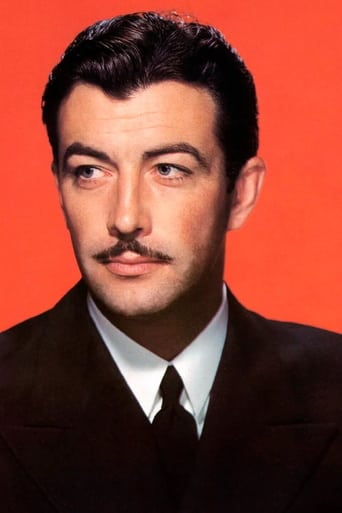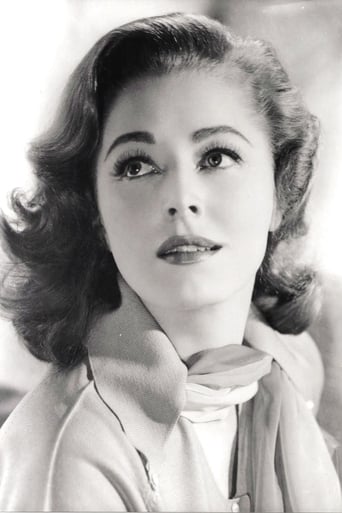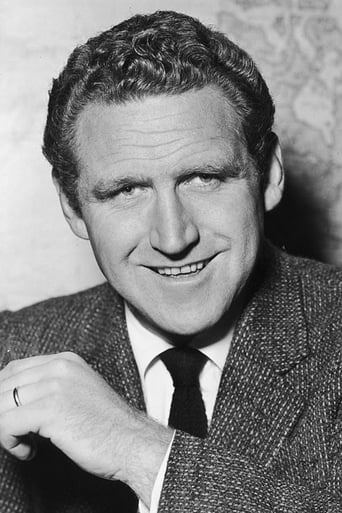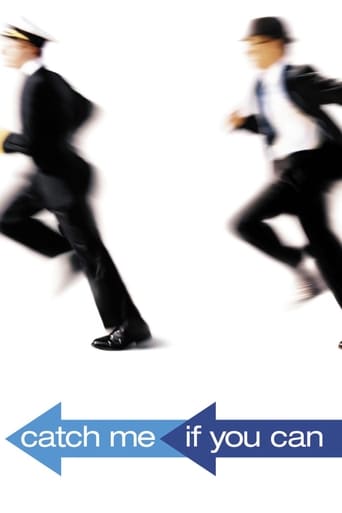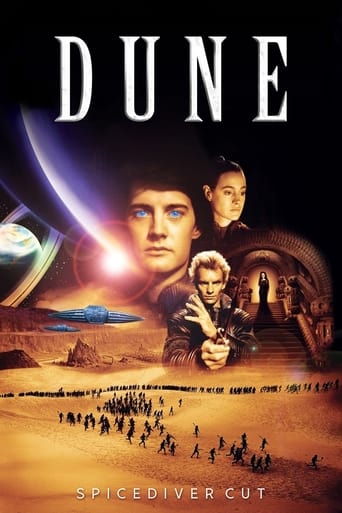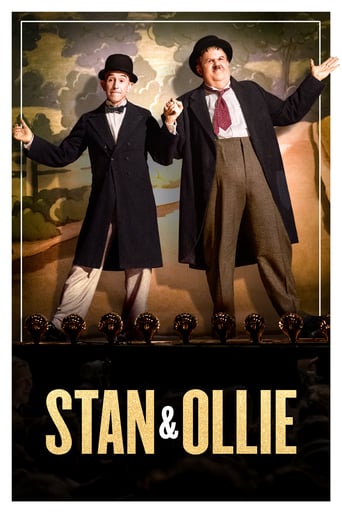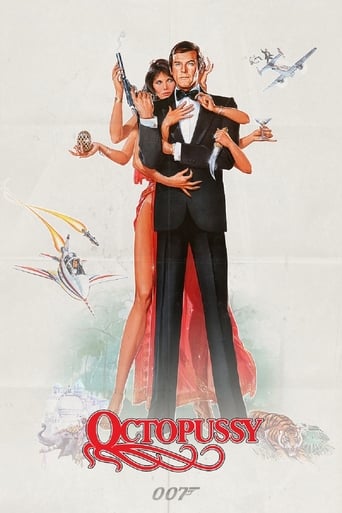Above and Beyond (1953)
The story of Colonel Paul Tibbets, the pilot that dropped the atomic bomb on Hiroshima. Although unaware of the full potential of this new weapon, he knows that it can do tremendously more damage than any other weapon used before, and that the death toll resulting from it will be huge. He is reluctant to be the person who will end so many lives, but as time goes on, the pressure upon him only increase.
Watch Trailer
Free Trial Channels
Cast


Similar titles
Reviews
Some things I liked some I did not.
Plenty to Like, Plenty to Dislike
Gripping story with well-crafted characters
This is ultimately a movie about the very bad things that can happen when we don't address our unease, when we just try to brush it off, whether that's to fit in or to preserve our self-image.
Producers: Norman Panama, Melvin Frank. Copyright 17 November 1952 by Loew's Inc. A Metro-Goldwyn-Mayer picture. Filmed with the co- operation of the Department of Defense and the United States Air Force. New York opening at the Mayfair: 30 Jan 1953. U.S. release: Jan 1953. U.K. release: 23 March 1953. Australian release: 30 Jan 1953. 122 minutes.COMMENT: A sequel to "The Beginning Or the End" (1947), "Above and Beyond" supposedly tells the story of Paul Tibbets, the USAF officer who piloted the plane that dropped the atom bomb on Hiroshima in 1945. As his mission is top-secret, the good-natured pilot is not permitted to tell his shrewish wife what he is doing. Obviously a person who is both ill-fitted and ill-equipped to be a serviceman's spouse, Mrs. Tibbets is depicted in the film as a vitriolic, self- centered, argumentative, unpatriotic shrike who does her best to lambaste her husband at every opportunity. She is an expert at putting her own comfort first, last and always.Beirne Lay is the astute author of "Twelve O'Clock High". I assume that he wrote all the comparatively fascinating air force footage, whilst Messrs Panama and Frank concocted all the irritating and overlong domestic trivia, including the slandering of Lucy Tibbets (Eleanor Parker) who is paraded here as a bitchy, nagging, utterly selfish virago whose verbal claws are constantly scraping against the impenetrable good humor of her meek, submissive husband (played with appropriate blandness by Robert Taylor). Whilst it's true that intervals between these nauseatingly relentless bouts of one-sided yaketty-yak are punctuated by some fairly exciting action footage, especially in the training sequences in the secret camp, I strongly advise giving "Above and Beyond" a determined miss. In fact, on its original release, Metro-Goldwyn-Mayer set exactly the right tone for this ridiculous domestic eye-view of the atom bomb attack on Hiroshima from the very start with a clumsily simulated newsreel clip showing a group of overly familiar character actors standing around, impersonating real-life figures watching a print of this film being buried in a time capsule! That sequence was later removed—and no wonder! The contentious nature of the attack is not even hinted at, let alone discussed. "Above and Beyond" is certainly no "Hiroshima, Mon Amour"!Needless to say, the film drew many complaints. So many, in fact that it was withdrawn and re-edited In its studio re-edited version, "Above and Beyond" now begins with a subtitle telling us that "this story could not be told until secret documents had been de- classified." Then up comes the title, "Above and Beyond", underlined by suitably thunderous music. On the next credit card, we read the stars, Robert Taylor and Eleanor Parker. Unfortunately, it all too soon becomes abundantly clear that the screenwriters have considerably expanded Mrs. Tibbets into an even more shrewish, moronic, mouth-unmuzzled spouse. What's worse, this impossible character is played all-stops-out by an always hysterical Parker, who yet manages the ritziest of costumes and the most impeccable grooming in the middle of the desert. Saddled with this sort of liability, Robert Taylor gives one of the glummest performances of his career. The directors don't help any either. The handling is consistently pedestrian. Even when we finally get into the action material, any vicarious sympathy for the hero's predicament is undermined by flat- footed inserts of obvious stock footage.
This film chronicles the life and career of Paul Tibbets, who dropped the bomb on Hiroshima. Far from getting heavy into the ethics or justification of that event, it mainly looks at the personal life of the man involved in this controversial bombing.There is one scene early on when one of his commanders is trying to decide if Tibbets is right for the job. He asked him if he could end the war tomorrow and save half a million American lives and others but would have to kill 100,000 people in the process, could he do it. He hands him a buzzer, and asks is he could push it. Tibbits pushes it. And thus he is chosen to head the mission.They go into a great deal of time in chronicling the relationship with his wife and the strain his "secret" mission put on the marriage. So it was interesting to see if from this personal perspective.But overall I found it a simplistic approach to a very difficult topic. The film was made in 1952 and the country was still very much pro-war in regards to WWII. To be certain if the film were made today, it would look VERY different by the liberals in today's Hollywood.Mucxh of the film is told from the viewpoint of Tibbets wife, played by Eleanor Parker. She in fact narrates much of the film to add necessary details. I suppose this tactic was used to make the viewer more sympathetic and forgiving of a difficult subject - and kept them from delving too deeply into the controversy.There is one attempt at the end when, after the bombing makes news and Tibbets is revealed as commander, a reporter asks him what he felt personally about dropping the bomb. He doesn't want to comment, but when the reporter pushes with a "but my readers WANT to know!", he turns the question back to the reporter. He says "How do THEY feel about it?"Don't look to this film for any in depth answers to difficult questions. But if you enjoy seeing the personal side of the story to those involved, then this is a well made film with an adequate cast.
In 1945 a B-29 piloted by Colonel Paul Tibetts (Robert Taylor) dropped the first atom bomb on human beings in Hiroshima, killing some 78,000 people and destroying with one blow about three square miles of urban landscape, virtually ending World War II.All things considered, including the fact that this was released in 1953, it's an interesting if shallow story. That's too bad because the narrative has a lot of intrinsic energy. The movie, though, follows the usual conventions of the time and, for one reason or another, doesn't really want to get into cumbersome reality or moral implications.The commanding general comments during Tibetts' training that, for a moment, Tibetts looked a little uncomfortable. Tibetts explains that while he'd been a bomber pilot over Germany he walked through the bomb bay before every flight and it occurred to him every time that there were going to be "people down there." "You're right, sir, I did feel uncomfortable. I wouldn't think much of myself if I didn't." General: "Neither would I." Tibetts is going to kill almost 80,000 people, mostly civilians of different ages, and it makes him "uncomfortable." End of philosophical quandary.There are some nice shots of B-29s landing, taking off, and in flight -- but not many of them. And not much goes on in the interiors either that isn't required for the telling of the story. Pilots often complained that the B-29 was a beast to fly.Probably a lot of material having to do with the development of the bomb and Tibetts' mission was still classified, so much -- maybe most -- of the film is given over to Tibetts' family life. He has a beautiful wife and a child. When she gives birth to a second, Tibetts isn't there for her and she resents it. The conflict intensifies over time because Tibetts is heavily burdened with the responsibility of preparing for the all-important bombing. He becomes snappish with his family. He fires old friends for breaches of security. He doesn't handle his wife delicately either. "It's none of your business," he tells her. And, mollifyingly, "I'll tell you what. You take care of the house and children and let me take care of my work." Of course he can't tell her about why his work is so important. It's a secret. What's worse, he has to keep secret the fact that it's a secret.The entire domestic theme could have been eliminated and the time spent in pursuit of other things if the writers and producers had wanted to go that way, but they didn't. I'm not entirely sure they should have. It would have been a different kind of film. As it is, the result is a rather shallow film that's in its own way kind of reassuring because it's so nostalgic. The wife has a full-time job at home, and the husband goes out and fights in the jungle to make a living or win a war. And they were locked together for life. Divorce, while not unheard of, would have been a disgrace. Candidates have lost presidential nominations for having been divorced. (Ronald Reagan was our first and only divorced president).A couple of observations. Tibetts took off for Hiroshima from a USAAF base on the island of Tinian. New Yorkers would have felt at home on Tinian. The streets were laid out and named as they were in Manhattan. The main drags were Broadway and Fifth Avenue, West End Avenue was where it should have been, and so forth.The bomb was armed in flight by a Navy officer. "It's been planned ahead of time." Why Navy, you ask? I mean -- this being an Air Force mission and all? Official justifications aside, the Navy probably didn't want to be left out of the show. It would probably be a mistake to believe the dynamics of celebrity are less primitive than that.Tibetts and crew certainly had awesome responsibilities but had little to do with the development of the bomb. Their job was to carry the thing to its target and deliver it as planned, rather like the driver of a UPS van. But there are times when the script gives Tibetts what appears to be control over the scientists he deals with. Nobody ever remembers who came in second, who dropped the bomb over Nagasaki, so we might point out his name was Bock and his plane was Bock's Car.At any rate, it's a dated but watchable movie and for those too young or inattentive to history to already know the story, it's worth catching.
This movie is the best production of the first A-bomb attack. Though Hollywood produce another shortly after the war and despite the cast, Brian Donlevy, as General Groves, and Robert Walker it was highly fictional.My late uncle served with Colonel Tibbits in the 509th and he said that Robert Taylor captured the colonel exactly. James Witmore is very effective as the security officer whose task is as difficult as Taylor's. The film captures the enormity of the task of developing the A-Bomb in almost total secrecy from the public and the enemy.The grimness of this is clearly shown throughout the movie. There is very little flag-waving in this picture and one does not fail to realize that the bombing was necessary to prevent a greater loss of life if the Japanese homeland was invaded.

